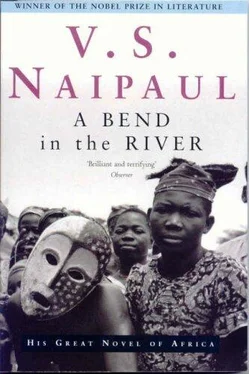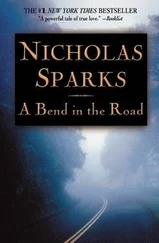By land or by water it was a difficult journey, and took two days. By land during the rainy season it could take three. In the beginning Zabeth came by the land way, trekking with her women assistants to the road and waiting there for a van or truck or bus. When the steamers started up again, Zabeth always used the river; and that wasn't much easier. The secret channels from the villages were shallow, full of snags, humming with mosquitoes. Down these channels Zabeth and her women poled and often pushed their dugouts to the main river. There, close to the bank, they waited for the steamer, the dugouts full of goods--usually food--to be sold to people on the steamer and the barge the steamer towed. The food was mainly fish or monkey, fresh or _boucan�--smoked in the way of the country, with a thick black crust. Sometimes there was a smoked snake or a smoked small crocodile, a black hunk barely recognizable for what it had been--but with white or pale pink flesh below the charred crust. When the steamer appeared, with its passenger barge in tow, Zabeth and her women poled or paddled out to the middle of the river and stood at the edge of the steamer channel, drifting down with the current. The steamer passed; the dugouts rocked in the swell; and then came the critical moment when the dugouts and the barge came close together. Zabeth and her women threw ropes onto the lower steel deck of the barge, where there were always hands to grab the ropes and tie them to some bulkhead; and the dugouts, from drifting downstream and against the side of the barge, began moving in the other direction, while people on the barge threw down pieces of paper or cloth on the fish or the monkey they wanted to buy. This attaching of dugouts to the moving steamer or barge was a recognized river practice, but it was dangerous. Almost every trip the steamer made there was a report of a dugout being overturned somewhere along the thousand-mile route and of people being drowned. But the risk was worth taking: afterwards, without labour, as a _marchande__ selling goods, Zabeth was towed up the river to the very edge of the town, uncoupling her dugouts by the ruins of the cathedral, a little before the docks, to avoid the officials there, who were always anxious to claim some tax. What a journey! Such trouble and danger to sell simple village things, and to take other goods back to the people of her village. For a day or two before the steamer came there was a market and a camp in the open space outside the dock gate. Zabeth became part of this camp while she was in the town. If it rained she slept in the verandah of a grocery or a bar; at a later date she put up in an African lodging house, but in the beginning such places didn't exist. When she came to the shop there was nothing in her appearance that spoke of her difficult journey or her nights in the open. She was formally dressed, wrapped in her cotton in the African style that by folds and drapes emphasized the bigness of her bottom. She wore a turban--a piece of downriver style; and she had her vanity case with the creased notes she had got from people in her village and people on the steamer and barge. She shopped, she paid; and some hours before the steamer sailed again her women --thin, short, bald-looking, and in ragged working clothes--came to take the goods away. This was a quicker journey, downriver. But it was just as dangerous, with the same coupling and uncoupling of the dugouts and the barge. In those days the steamer left the town at four in the afternoon; so it was deep night when Zabeth and her women came to where they had to cast off from the steamer. Zabeth took care then not to give away the entrance to her village. She cast off; she waited for the steamer and the barge and the lights to disappear. Then she and her women poled back up or drifted down to their secret channel, and their nighttime labour of poling and pushing below the overhanging trees. Going home at night! It wasn't often that I was on the river at night. I never liked it. I never felt in control. In the darkness of river and forest you could be sure only of what you could see--and even on a moonlight night you couldn't see much When you made a noise--dipped a paddle in the water--you heard yourself as though you were another person. The river and the forest were like presences, and much more powerful than you. You felt unprotected, an intruder. In the daylight--though the colours could be very pale and ghostly, with the heat mist at times suggesting a colder climate--you could imagine the town being rebuilt and spreading. You could imagine the forests being uprooted, the roads being laid across creeks and swamps. You could imagine the land being made part of the present: that was how the Big Man put it later, offering us the vision of a two-hundred-mile "industrial park" along the river. (But he didn't mean it really; it was only his wish to appear a greater magician than any the place had ever known.) In daylight, though, you could believe in that vision of the future. You could imagine the land being made ordinary, fit for men like yourself, as small parts of it had been made ordinary for a short while before independence--the very parts that were now in ruins. But at night, if you were on the river, it was another thing. You felt the land taking you back to something that was familiar, something you had known at some time but had forgotten or ignored, but which was always there. You felt the land taking you back to what was there a hundred years ago, to what had been there always. What journeys Zabeth made! It was as though she came out each time from her hidden place to snatch from the present (or the future) some precious cargo to take back to her people--those razor blades, for instance, to be taken out from their packets and sold one by one, miracles of metal--cargo that became more precious the further she got from the town, the nearer she got to her fishing village, the true, safe world, protected from other men by forest and clogged-up waterways. And protected in other ways as well. Every man here knew that he was watched from above by his ancestors, living forever in a higher sphere, their passage on earth not forgotten, but essentially preserved, part of the presence of the forest. In the deepest forest was the greatest security. That was the security that Zabeth left behind, to get her precious cargo; that was the security to which she returned. No one liked going outside his territory. But Zabeth travelled without fear; she came and went with her vanity case and no one molested her. She was not an ordinary person. In appearance she was not at all like the people of our region. They were small and slight and very black. Zabeth was a big woman with a coppery complexion; there were times when this copper glow, especially on her cheekbones, looked like a kind of makeup. There was something else about Zabeth. She had a special smell. It was strong and unpleasant, and at first I thought--because she came from a fishing village--that it was an old and deep smell of fish. Then I thought it had to do with her restricted village diet. But the people of Zabeth's tribe whom I met didn't smell like Zabeth. Africans noticed her smell. If they came into the shop when Zabeth was there they wrinkled their noses and sometimes they went away. Metty, the half-African boy who had grown up in my family's house on the coast and had come to join me, Metty said that Zabeth's smell was strong enough to keep mosquitoes away. I thought myself that it was this smell that kept men away from Zabeth, in spite of her fleshiness (which the men here liked) and in spite of her vanity case--because Zabeth wasn't married and, so far as I knew, lived with no man. But the smell was meant to keep people at a distance. It was Metty--learning local customs fast--who told me that Zabeth was a magician, and was known in our region as a magician. Her smell was the smell of her protecting ointments. Other women used perfumes and scents to attract; Zabeth's ointments repelled and warned. She was protected. She knew it, and other people knew it. I had treated Zabeth so far as a _marchande__ and a good customer. Now that I knew that in our region she was a person of power, a prophetess, I could never forget it. So the charm worked on me as well.
Читать дальше












